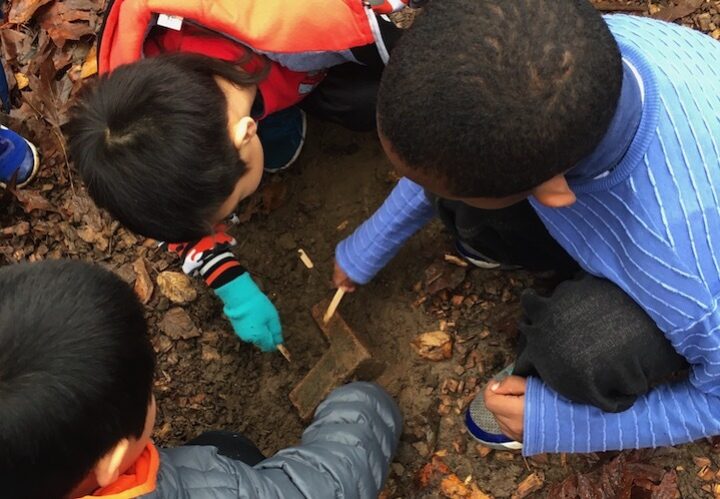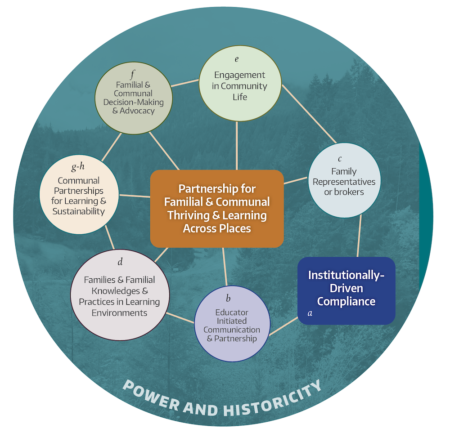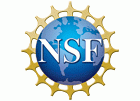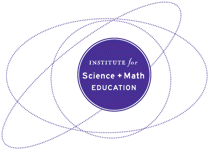Building Family-Centered Models for Science Education through Learning in Places

- Family members can take on a wide variety of roles to support science learning. You do not need to think of yourself as a science expert to help children learn science! Use these questions to support investigations.
- Educators and community partners should consider how their institutional resources can support field-based investigations at home—rather than trying to replicate school at home.
- School leaders and PD providers should examine the values and relational qualities that drive partnership with families.
What Is The Issue?
Families and communities are always engaged in complex sensemaking about scientific phenomena—navigating social and ecological systems through everyday observations, questions, and decisions. Place-emergent science investigations are powerful opportunities for families to consciously engage in collaborative scientific sensemaking and culturally regenerative interactions. Family and home-based activities represent opportunities for educators to re-think and re-shape science learning in ways that put partnerships with families at the center. Frameworks and lessons from the Learning in Places project can support families and educators in this endeavor.
Image source: the Learning in Places project, learninginplaces.org
Authors:
BY JORDAN SHERRY-WAGNER, PRIYA PUGH, ABBY RHINEHART, CHRISTINA GUEVARA, MEGAN BANG, CARRIE TZOU & PHILIP BELL | AUGUST 2021
Reflection Questions
- How are the learners you work with already engaging in activities with their families around science phenomena? How could you find out?
- How can your school/institution support family and community engagement in designing curricula and learning? Reflect further with the Self-Assessment for Family Engagement.
Things to Consider
- Science investigations should directly build upon students’ cultural funds of knowledge, which can include their family’s shared experiences, stories, and relationships with places. The Learning in Places project’s neighborhood walk activities for classrooms and families focus learning on these family understandings of a place, its histories, and its significance to families, communities, and science.
- Family-centered investigations—like those developed for “family making” in the TechTales robotics program—create a space where families build and share their relationships and identities.
- Recent events offer an opportunity to rethink education and center culturally resurgent learning. To that end, educators can support more home-based learning activities, more communication between educators and families, and a focus on ethics in science learning. The resources from Learning in Places offer starting points in that work, as they position families and communities as equal decision makers and co-designers of curricula and learning experiences.
Attending to Equity
- Co-design learning activities with families and communities at the table. Explore justice-based models of Family Leadership and Design, and refer to the Learning in Places Family and Community Framework for Engagement and Collaboration to explore different models of partnership with families.
- Neighborhood walks do not require a particular distance to be covered. Many of the activities can be done by just looking out a window. If visual observation is a challenge, other senses can perceive phenomena—like smelling fresh tree sap, feeling a leaf’s texture, or close listening.
- Relations to place are mediated by powered historical dynamics. Often these privilege Eurocentric/settler-colonial ways of knowing and relating to places that exclude the Indigenous peoples who still reside on, or were forcefully removed from, their homelands. Engage in ongoing education about whose lands your family or school live on and take actions that support Indigenous self-determination.
Recommended Actions You Can Take
- Implement the Learning in Places classroom storyline to engage in meaningful science learning that strengthens the relationships between families and educational institutions. The following activities are a few examples of how family and community knowledges and practices are centered in the classroom storyline:
- To share stories in relation to a place: Family Learning Across Places
- To share cultural knowledge and practices in relation to time and seasons: Why is this season important to our family?
- To consider family relationships to neighborhoods and communities: Sharing Places: Neighborhood Walk; Species, Kinds, and Behaviors; Places, Lands, and Waters; and Human Decision Making.
- To consider questions of ethics and health as they relate to families: Preparing for the Outdoors; Exploring your Family’s Daily Decisions; and Modeling a Neighborhood “Should We” Question.
- Deepen your own thinking and practice around family engagement through resources like the Learning in Places educator frameworks, which include research-based information, vignettes, and self-assessments you can take about your practice:
- To explore the importance of family engagement and collaboration: Family and Community Engagement and Leadership Framework
- To reflect on issues of learning, equity, and scientific knowledge: Culture, Learning, and Identity Framework
- To make sense of key dimensions of identity and relations in learning: Power and Historicity Framework

ALSO SEE STEM TEACHING TOOLS
STEM Teaching Tools content copyright 2014-22 UW Institute for Science + Math Education. All rights reserved.
This site is primarily funded by the National Science Foundation (NSF) through Award #1920249 (previously through Awards #1238253 and #1854059). Opinions expressed are not those of any funding agency.
Work is licensed under a Creative Commons Attribution-ShareAlike 4.0 Unported License. Others may adapt with attribution. Funded by the National Science Foundation (NSF). Opinions expressed are not those of any funding agency.


 Email Feedback
Email Feedback


